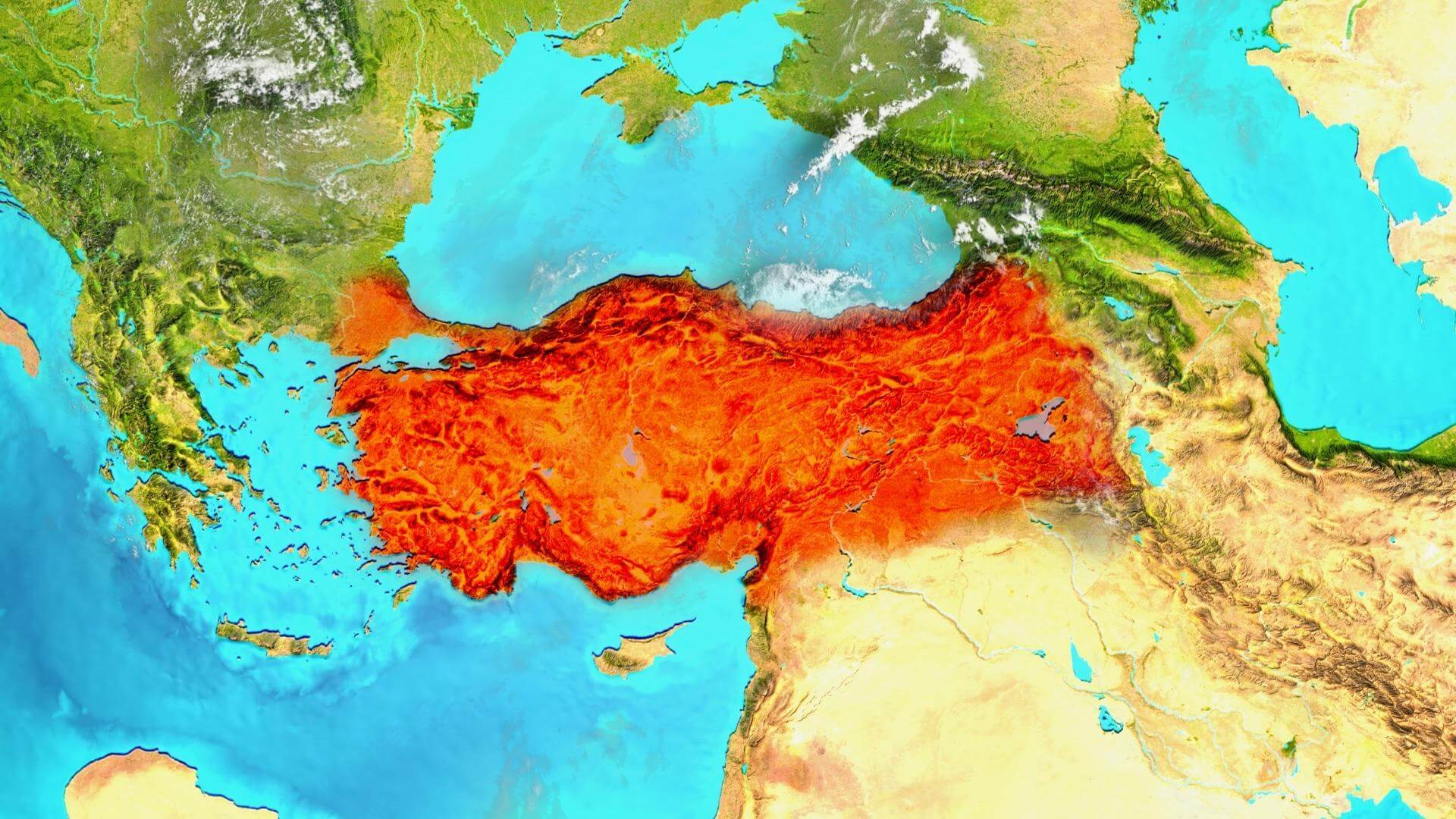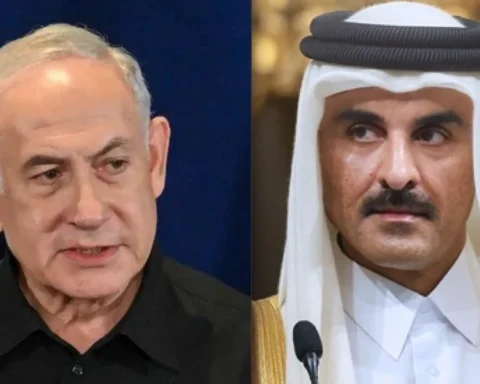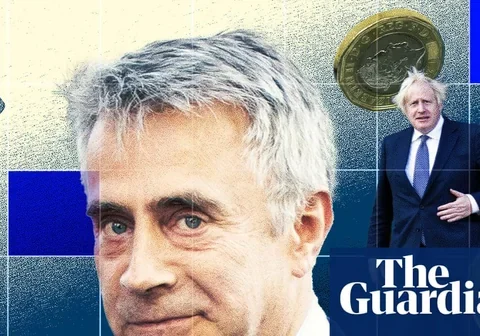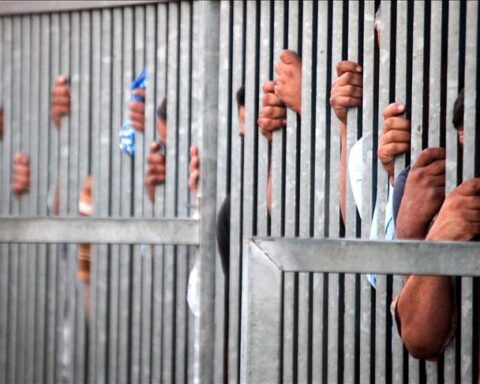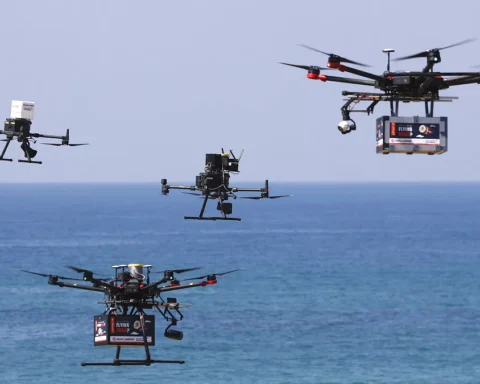Europe’s security needs and the Middle East’s power vacuum means more space for Ankara. President Erdogan is seizing the opportunity.
Against a backdrop of domestic repression, Turkey’s President Recep Tayyip Erdogan declared in a speech earlier this month, “Our goal is a great and powerful Turkey. Our mission is to build the Century of Turkey in all its glory. Our compass is our ancient values that make us who we are.”
In effect, Erdogan has thrown down the gauntlet to other Middle Eastern powers—Israel, Iran, and Saudi Arabia—that aspire to regional hegemony.
This has been in the making for some time. Erdogan’s antisemitism was pronounced when he, as a young man, was head of the youth branch of the Islamist National Salvation Party (MSP), led by Necmettin Erbakan, the father of political Islam in Turkey. He also wrote, directed, and acted in a play called “Mas-Kom-Yah” (Freemason-Communist-Jew).
Erdogan’s support for Hamas, which he has termed “not a terrorist organization, but a group for liberation and of mujahideen fighting to protect their land and citizens,” stems from his official invitation to its leader Khaled Mashal to visit Ankara in 2006.
Erdogan blamed the Gezi Park protests in 2013, which were the first serious threat to his regime, on “the interest rate lobby.” A Turkish court has even given activist Osman Kavala, a founding member of the Open Society Foundation in Turkey, created by “the famous Hungarian Jew” George Soros, a life sentence for being behind the protests.
Erdogan also speaks in a two-hour feature, “The Mastermind,” aired on a pro-government channel in 2015, which alleges that a mastermind, originating in Israel, plans for global domination.
A 4-minute video, “The Red Apple”, released by Turkey’s Directorate of Communications in 2020, makes Turkey’s intentions clear. In it, Erdogan recites the first verses of the Surah al-Fath (“on victory”) from the Quran, and the video ends with a shot of the Al-Aqsa mosque in Jerusalem, which Erdogan has promised to liberate from Israel.
At the end of March 2025, in an Eid al-Fitr address to the congregation at the Camlica mosque in Istanbul, Turkey’s largest mosque built by the AKP government, Erdogan said: “May the Lord make Zionist Israel ruined and devastated!”
As defense contributor Paul Iddon writes, while Israel and Iran were engaged in the Twelve-Day War, Erdogan was busy continuing a significant buildup of Turkey’s armed forces.
Asli Aydintasbas, director of the Turkey Project at the Brookings Institution, warns that Turkey and Israel risk sliding towards confrontation as Erdogan’s government ramps up its Sunni Islamist and nationalist rhetoric while Israel pursues military dominance in Lebanon, Gaza, and Syria.
The US role in the region has been undermined both by the withdrawal from the JCPOA deal and the June strikes on Iran’s nuclear facilities. There is also the question of whether it is prepared to withdraw its support for its Kurdish allies in northern Syria.
Six years ago, Erdogan told an Ankara military academy, “If you don’t have enough military, political and economic might, you should know that nobody will take you seriously.” With the current arms buildup, there is every reason to do so.
This year, the Global Fire Power index ranked Turkey as the ninth of the top 10 global military powers. In a military briefing, The Financial Times deemed Turkey vital to European security. Turkey is not slow to utilize this opportunity, and is pressing for two key defense deals: a coproduced SAMP/T missile defense system with France and Germany and the acquisition of Eurofighter Typhoon jets.
To secure the first deal, Erdogan has sought to overcome French president Macron’s objections because of Turkey’s disputes with Greece and Cyprus in the Eastern Mediterranean.
Germany has apparently overcome its objections to a Eurofighter deal. The UK, eager for a free trade agreement after Brexit, is prepared to include a strategic dimension. British prime minister Keir Starmer’s initiative to form “a coalition of the willing” peacekeeping force for Ukraine has turned out to be a damp squib. However, Turkish foreign minister Hakan Fidan declared Turkey’s interest in being included in Europe’s security architecture.
In March, the EU presented its plan, Readiness 2030 (previously known as ReArm Europe), to increase defense spending by nearly €650 billion and provide an additional €150 billion in loans (SAFE). The SAFE instrument allows third countries, including Turkey as a candidate country, to join common procurements, which Turkey, with its burgeoning defense industry, has a clear interest in.
However, there are two provisos for third-party participation. First, no country may threaten the interests of the European Union or any of its member states. Second, that inclusion needs unanimous approval.
Greece has stated that Turkey must drop its 30-year-old threat of war against Greece to gain its approval. Turkish defense minister Yasar Guler has dismissed this concern as “involving multilateral platforms in bilateral disputes.”
Apart from Turkey’s plans to acquire 40 F-16 fighter jets from the United States, despite CAATSA sanctions, it still hopes to be readmitted to the F-35 program. The US Ambassador to Turkey, Tom Barrack, has indicated that a solution is possible by the year’s end.
In addition to the TCG Anadolu, which has already been commissioned, Turkey, together with Spain, is building a second aircraft carrier. Given Turkey’s expansive maritime strategy, outlined in Mavi Vatan (“Blue Homeland”), this does not bode well for either Greece or Cyprus.
However, Europe is prepared to prioritize security over principle, even though there is justified doubt as to whose side Turkey is really on.
Robert Ellis is a Turkey analyst and commentator. He is also an international advisor at RIEAS (Research Institute for European and American Studies) in Athens. He is a regular commentator on Turkish affairs in the Danish and international press. Earlier, he was advisor to the Turkey Assessment Group in the European Parliament and a Senior Fellow at the Gatestone Institute in New York.
Source: https://nationalinterest.org/blog/middle-east-watch/turkeys-regional-power-push

